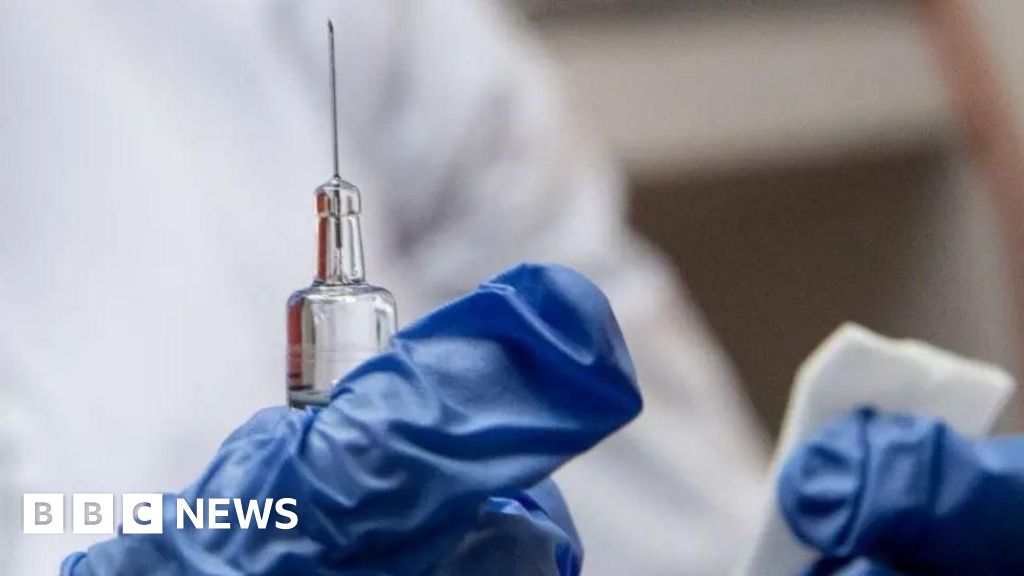Yang Tian and James Chater
BBC News

 Reuters
Reuters
Former US President Joe Biden has been diagnosed with an aggressive form of prostate cancer that has spread to his bones.
Biden received the news on Friday after he saw a doctor last week for urinary symptoms.
Here's what you need to know about prostate cancer and its treatment options.
What is prostate cancer?
Prostate cancer affects tissue of the prostate gland, the part of the male reproductive system that helps make semen. It is located between the penis and the bladder.
According to the NHS, it usually develops slowly, so it can often grow unnoticed for years. That means some people can live for decades without needing treatment. But it also means symptoms often don't appear until the cancer is already advanced.
Biden was diagnosed following urinary symptoms, one of the most common signs of prostate cancer. That's because it is often detected only when the prostate is big enough to have impacted the urethra, the tube that connects the bladder to the penis.
Those symptoms can include needing to urinate more frequently, as well as a slow or weak urinary stream.
Screening for prostate cancer is part of routine presidential health inspections, according to Dr Jeffrey Kuhlman, former White House doctor under President Barack Obama.
Prostate cancer is the second-leading cause of cancer death in American men, according to the American Cancer Society, behind lung cancer.
There will be more than 300,000 new cases in the US this year, according to projections by the American Cancer Society. About one in 8 men will be diagnosed with prostate cancer during their lifetime.
While it is "not uncommon" for men in their 80s to be diagnosed with prostate cancer, the grade and stage of Biden's cancer are "more advanced than most men would encounter" at diagnosis, Dr Ryan Cleary, urologist at MedStar Health, told the BBC.
What is the Gleason score?
The former president's prostate cancer is "characterised by a Gleason score of 9", his office said in the statement announcing his diagnosis.
The Gleason score is the most common way of grading how likely the disease will advance and spread - also known as metastatic cancer.
Specifically, it refers to how abnormal the cancer cells look in a sample under a microscope. The scale runs from six to 10, with a higher number indicating a more aggressive cancer.
The scale starts at six because it is calculated by combining the two most common patterns of cancer cells found in a patient. The lowest score assigned to cancerous cells is three. That's why the lowest Gleason score for a cancer diagnosis is six.
A Gleason score of nine, such as Biden's, means it is a "high-grade cancer". Cancer cells with a score of nine look very abnormal and are likely to grow quickly.
What are Biden's treatment options?
In Biden's case, the cancer is aggressive in nature and has already spread to his bones.
According to Dr Jamin Vinod Brahmbhatt, a urologist at Orlando Health Medical Group, this level of spread does limit the treatment options.
While there are medical based treatments such as chemotherapy, steroids and hormone therapy available, none of them are "curative", he said.
"There are more medical options to stabilise the patient and control the cancer, but it never gets rid of the cancer completely."
Biden's cancer is also said to be hormone sensitive, which means the cancer uses hormones to grow or develop.
These types of cancers can be managed by drugs that block or lower the amount of hormones in the body.
Dr Brahmbhatt said while this "opens up the toolkit" of treatment options for Biden, it was going to take "weeks or months" to see how he responds.
Dr Kuhlman said Biden could also have the option of entering "clinical trials for advanced disease" if he meets the inclusion criteria.
Biden and his family are said to be reviewing treatment options.
What is his prognosis?
In Sunday's statement, Biden's office said since the cancer appeared to be hormone-sensitive, that "allows for effective management".
The full details of Biden's case is not known. Dr Cleary said: "Generally about a third of patients will still be alive after five years of metastatic prostate cancer."
Advanced stages of prostate cancer can limit a person's lifespan and lead to symptoms that make daily life harder.
Dr Kuhlman describes "10 to 15 years of function" when looking at aggressive cancer treatments and said it was important to consider treatments that maintain Biden's quality of life in the next few years.
"If there's any inspiration in this, it is to go and get yourself checked out whether you have symptoms or not," Dr Brahmbhatt said.

 German (DE)
German (DE)  English (US)
English (US)  Spanish (ES)
Spanish (ES)  French (FR)
French (FR)  Hindi (IN)
Hindi (IN)  Italian (IT)
Italian (IT)  Russian (RU)
Russian (RU)  1 month ago
1 month ago























Comments